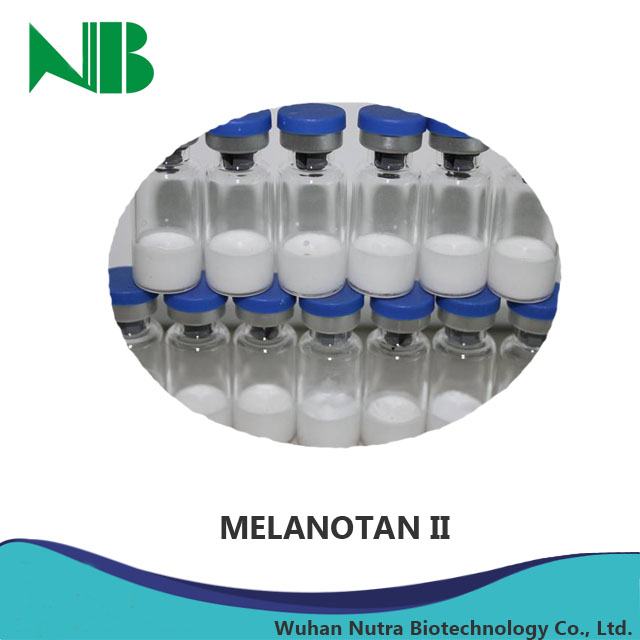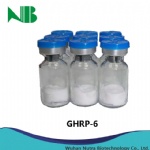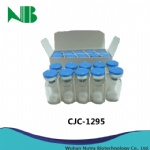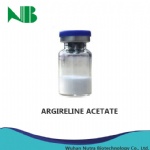| Product Name: | Melanotan II |
| Synonyms: | AC-NLE-CYCLO(-BETA-ASP-HIS-D-PHE-ARG-TRP-EPSILON-LYS-NH2);AC-NLE-CYCLO[(BETA-D)-HFRW-(EPSILON-K)]-NH2;AC-NLE-CYCLO(-ASP-HIS-D-PHE-ARG-TRP-LYS-NH2) ACETATE SALT;AC-NLE4-C[ASP5, D-PHE7, LYS10]ALPHA-MSH (4-10)-NH2;AC-[NLE4, ASP5, D-PHE7, LYS10]-ALPHA-MSH (4-10)-NH2;(AC-NLE4, ASP5, DPHE7, LYS10)-CYCLO-ALPHA-MSH (4-10) AMIDE;AC-NLE-ASP-HIS-D-PHE-ARG-TRP-LYS-NH2;AC-NLE-ASP-HIS-D-PHE-ARG-TRP-LYS-NH2, ASP5-LYS10, CYCLIC LACTAM |
| CAS: | 121062-08-6 |
| MF: | C50H69N15O9 |
| MW: | 1024.18 |
| EINECS: | -- |
| Product Categories: | Amino Acid Derivatives;Peptide;Melanocortin receptor;Peptides |
Melanotan II (CAS NO.121062-08-6) was first synthesized at the University of Arizona. Researchers decided to find a more potent and stable alternative, one that would be more practical to defenses against skin cancer
The researchers headed by Victor Hruby, found a peptide, [Nle4, D-Phe7]-α-MSH, that was approximately 1,000 times more potent than natural α-MSH after synthesizing and screening hundreds of molecules. They dubbed this new peptide, "Melanotan" (later Melanotan I, now known as afamelanotide). They subsequently developed another analog, Ac-Nle-cyclo[Asp-His-D-Phe-Arg-Trp-Lys]-NH2), which they named "Melanotan ⅡAcetate". Since their discovery, numerous studies dating back to the mid-1980s have found no obvious toxic effects of the Melanotan peptides. The scientists hoped to use Melanotan peptides to combat melanoma by stimulating the body's natural tanning mechanism to create a tan without first needing exposure to harmful levels of UV radiation. This in turn, they hypothesized, could reduce the potential for skin damage that can eventually lead to skin cancer.















